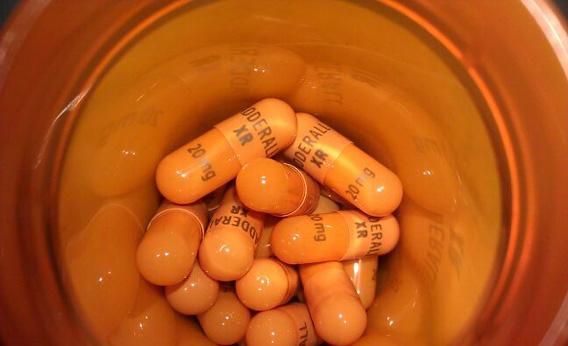Ten Facts about Stimulants You Should Know
Since prescription drug abuse, particularly stimulant abuse, is rampant among various populations in the United States, it is important to know everything you can about them. They are as prevalent as ever in today’s society particularly in elementary, high school, and colleges. Next to opiates, they are one of the most abused drugs. The Drug Enforcement Agency considers them both dangerous and toxic when used incorrectly. Stimulates can be both extremely beneficial and detrimental to a person’s health. It is because of this that there are several very important facts about stimulants you should know.
Fact one: Stimulants are available over the counter

Many stimulants are readily available over the counter.
There are several varieties of stimulants available over the counter. These stimulants range from energy drinks and pills, to diet drugs and cold medicine. Governments took several of these drugs off the market or put buying restrictions on them due to abuse.
Fact two: Stimulants affect the brain
Everyone knows that most drugs affect the brain in one way or another but very few people realize how this happens. Stimulants are chemically similar to many neurotransmitters. The stimulants act with the neurotransmitters, augmenting them and making them more powerful. Some stimulants bind to neurotransmitter receptor sites and block the neurotransmitter. This causes a different reaction in the brain.
Fact three: Stimulants are addictive
When some people take stimulants, they feel good, have more energy, and are generally more productive. They want to feel like that all the time. When they continue to take the stimulants, they gradually become addicted to the feeling and the drug. While this is happening, physical and chemical changes take place in the body and brain. These changes may become semi-permanent making the user physically need the drug to survive.
Fact four: Stimulants have side effects
As with many other drugs, stimulants have some severe side effects. These side effects can range from mild to life damaging to deadly. A few of the side effects of stimulants are:
- headache,
- stomach issues,
- high blood pressure and heart rate,
- loss of appetite,
- weight loss,
- tics and nervous movements,
- anxiety,
- insomnia, and
- cardiovascular complications.
These are just a few of the known side effects. The different stimulants each have their own set of side effects and issues.
Fact five: Stimulants can kill you
According to the National Institute on Drug Abuse, death due to stimulants is on the rise. Stimulants kill in different ways depending on the stimulant. Manufacturers of illicit drugs sometimes mix them with other more dangerous chemicals, some of which can cause death. Another way stimulants kill, is through overdose. Some people build a tolerance and take too much of a stimulant causing their heart to stop or their breathing to become too rapid. During an overdose, the body winds up in such a heightened state that organs start to shut down. Stimulants can lead to a heart attack or a stroke. This can happen with illegal, prescription, and over the counter stimulants.
Fact six: Stimulants are used to improve concentration
With all of the negatives about stimulants, it is good to remember that there are some positives. We now know that some stimulants improve concentration and brain function for a short time. This makes them helpful for people with memory or concentration issues. Doctors use these stimulants for both Alzheimer’s patients and ADHD patients.
Fact seven: Stimulants are helpful in some instances
There is a reason why doctors prescribe stimulants and people can buy some stimulants over the counter. Stimulants have many beneficial uses. Aside from improving concentration, stimulants help people lose weight, keep people awake when they need to be, and help with certain nervous issues. They also are prescribed for nervous system disorders.
Fact eight: You should not take stimulants if
Certain people should not take stimulants under any circumstance. You should not take stimulants if:
- You are pregnant or nursing – stimulants can cause birth defects and other complications.
- You use certain herbal supplements, over the counter medications, or vitamins. These can amplify the stimulant causing an overdose or other adverse reaction.
- You have a heart condition, high blood pressure, liver disease, kidney disease, or heart disease.
- You have a history of addiction to other substances.
- You have certain mental health issues. Stimulants can exacerbate mania, depression, and other disorders.
If any of these circumstances apply to you, you should talk to a doctor who knows you before taking over the counter, illicit, or prescription stimulants.
Fact nine: Many stimulants are natural
The term stimulant means something that stimulates the nerves, body, or brain. Some stimulants are perfectly natural. Coffee, nicotine, yerba mate, some teas, vitamin B (particularly B12), coconut oil, and ginseng are all natural stimulants. There are too many stimulants found in nature to list. Many of the energy drink ingredients, coffees, teas, and herbal dietary supplements are found in nature as well.
Fact ten: There is help for those addicted to stimulants
It is important to know all the facts about stimulants before trying them. Although stimulants have many benefits, the fact that they are addictive means that someone who uses them might need help to stop. All stimulants are addictive, no matter what their form is. Fortunately, there are treatments, doctors, and treatment centers that are happy to help with stimulant addiction. A good place to start looking for help is at your doctor’s office. They can either help you get off stimulants or refer you to a proper treatment program.
There are also anonymous free or low cost clinics, groups, and treatment centers. These are usually run by the state and have a variety of ways to access them. If you look at your state’s Department of Health website, they should be able to direct you to a program that suits your needs.



